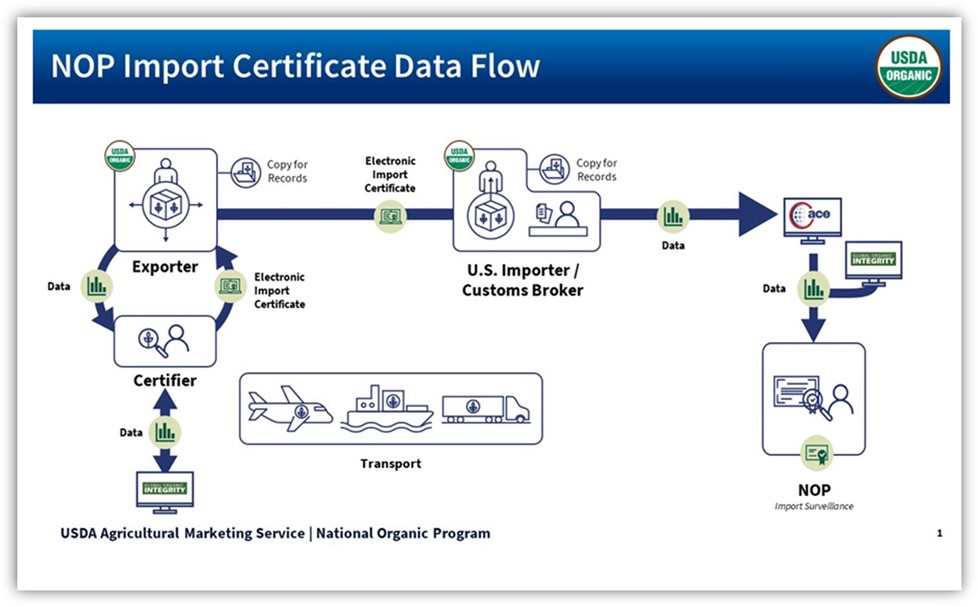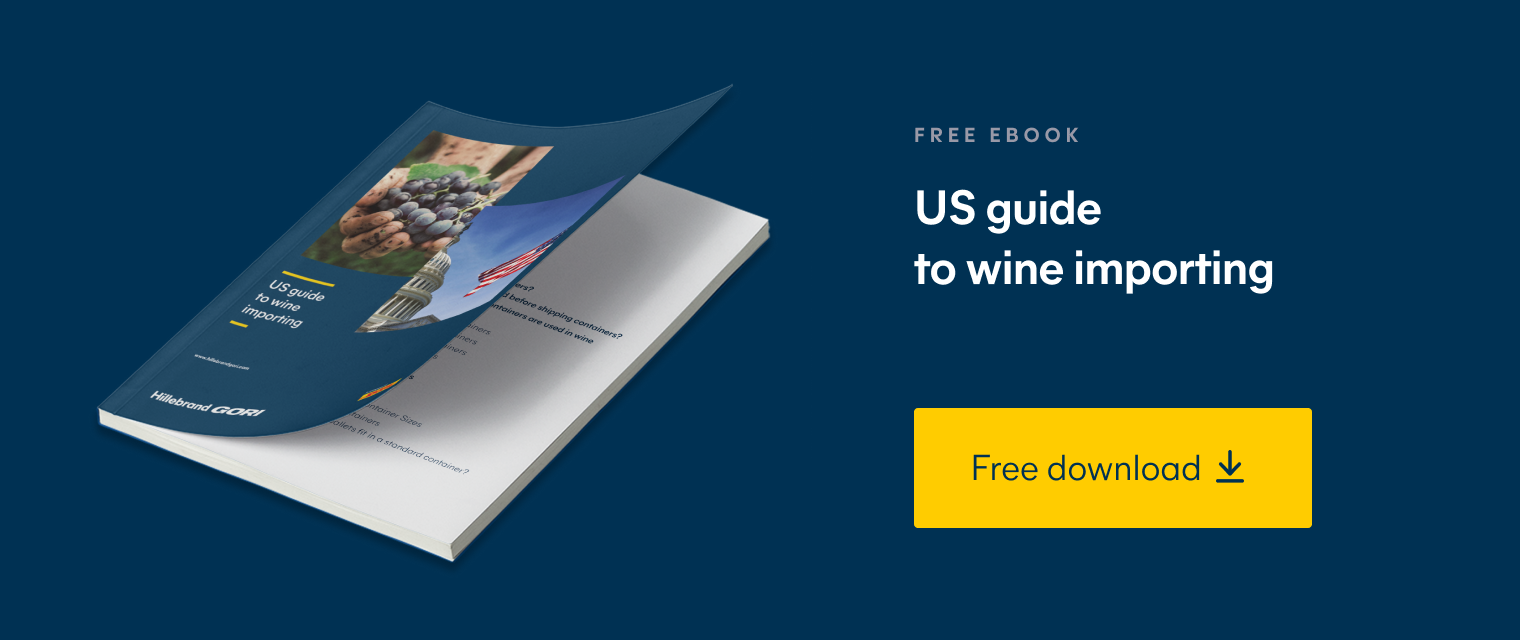What is strengthening organic enforcement?
Organic wine sales are rocketing, thanks to increasingly environmentally and health-conscious consumers, but what exactly makes a wine organic?
The use of the term ‘organic’ for wine entering the US market is regulated by the United States Department of Agriculture (USDA). Broadly, organic wines are produced from organically-grown grapes, free from synthetic pesticides, and additives such as sulphites. USDA certified organic wine must be grown and processed following federal guidelines on soil, weed and pest control, and additives.
However, a lack of standardization created gaps in organic supply chain, which undermined the value of the term ‘organic’. To improve traceability of imports to the US, the USDA’s National Organic Program (NOP) launched the Strengthening Organic Enforcement (SOE) Rule in January 2023.
The new rules apply from March 19th, 2024 and will help increase consumer confidence in organic labels and integrity. But, as with any new regulations, there are many new requirements and processes that importers of organic wines will need to understand. For importers of organic wines to the US, this new rule will have a significant impact. So, how do these changes affect organic wine importers?
Who needs to be certified for SOE?
Prior to the new strengthening organic enforcement rules, only producers that labeled, processed, or packaged organic products needed to be certified.
Now, anyone buying, selling or trading organic products must be certified. This includes wine buyers, traders, private label brand owners, distributors, exporters and importers, as well as some storage facilities.
Who doesn’t need to be certified for SOE?
Some operations may be exempt under the new regulations, including:
- Storage facilities holding products in sealed, tamper-evident packaging. The products must remain in this packaging during storage.
- Customs or logistics brokers who do not import, trade, sell, or take ownership or physical possession of organic products.
- Transport companies that do not otherwise handle products.
SOE for importers
For importers of organic wine to the US, there are three key changes to be aware of:
- The new regulations require all organic wine imports into the United States to be declared and associated with an NOP Import Certificate. This applies for both cased and bulk wine imports.
- The US organic wine importer must have organic certification. Both the US importer and the foreign exporter must be certified organic and listed on the NOP Import Certificate.
- All documentation must indicate that the product is certified organic.
Unpackaged wine products, such as bulk wine exports in containers such as Flexitanks, ISO tanks, kegs or barrels, may need certification.
Equally, transporters combining or splitting products must also be certified. The certified operation contracting the transporter should have an organic system plan that describes how the wines are protected.
Importers of organic wines to the US are responsible for:
- Requesting a copy of the NOP Import Certificate from the exporter.
- Making sure that the import is accompanied by an NOP Import Certificate.
- Ensuring products are identified as organic on all import documents. This includes:
- invoices
- packing lists
- bills of lading - Customs and Border Protection entry data
- Having import documents on-site and available for inspection.
- Verifying that the shipment has had no contact with prohibited substances or ionizing radiation since export.
- Having a documented organic control system. This can be done by completing the H5.0 Organic Record Keeping for Handlers form.
- Verifying suppliers in the supply chain and the organic status of products.
What does NOP compliant mean?
An NOP Import Certificate for imported organic wine contains information about the quantity and origin of the organic wines being imported into the United States. From March 19, 2024, this document will be required for all organic imports.
Before the strengthening organic enforcement rule, a certificate was only required for shipments from countries with an equivalence arrangement. The NOP import certificate process is:
- The exporter in the foreign country requests the NOP Import Certificate from their USDA certifier.
- The certifier reviews the request and issues the NOP Import Certificate in the USDA Organic Integrity Database.
- The exporter receives the NOP Import Certificate from the certifier.
- The exporter provides the certificate to the US importer.
- The US importer or customs broker enters the NOP Import Certificate number into the Customs and Border Patrol ACE (Automated Commercial Environment) system.
- This associates the shipment details with the import certificate. The NOP Import Certificate should be available for review at the importer’s organic inspection.

How to manage the impact of strengthening organic enforcement policies
Getting certified early is important and can help ensure a seamless transition to the new rules. The strengthening organic enforcement rules add extra checks and documentation to the import process for wines entering the US. This has the potential to create errors and delays at customs, which can be damaging for these temperature-sensitive wines. There are a few steps that importers can take to help protect their organic wine shipments, including:
- Anticipate the weather: any member of the myHillebrandGori team can share with you the predicted temperature and humidity for your shipments routing. We do this my accessing the World Metereological Organizations data of historical climate records and preparing a report with the minimum, maximum and average readings for any trade lane, on any date, at any time.
- Insulation liners: a Hillebrand Gori insulation liner protects wine from humidity and temperature fluctuations, protecting it for even the longest journeys.
- LCL services: using Hillebrand Gori’s less than container load services is a cost effective and agile way to ship pallets of organic wines. LCL services to the USA are temperature controlled or fitted with a Hillebrand Gori insulation liner to help preserve the quality of the wines whilst in transit. In addition, Hillebrand Gori’s pallet insulation covers individual protection for your shipment and are available in a range of sizes.
- Visibility of documentation: myHillebrandGori makes it easy to share the information with your supply chain partners, and keep track of your documentation.
- Shipment Value Protection: protect your business in the unlikely event of an accident, loss or damage, Hillebrand Gori’s enhanced liability can safeguard your business from financial hardship.
Get ahead of changing regulations with an experienced logistics partner
With the right logistics partner to help you navigate the new documentation and supply chain requirements, there has never been a better time to capitalize on the increasing demand for organic and biodynamic wines. Get in touch today for expert advice.
Published 14th May 2024
Reviewed by Hillebrand Gori
As part of the certification process, a USDA accredited certifier will need to schedule an on-site visit. It’s a good idea to reach out to a certifier as soon as possible as the certification process may take months.
An NOP Import Certificate may be issued for a single transaction, or for a specific time frame.
An NOP Import Certificate issued for a specific time frame covers a certain amount of product shipped over that time period. A separate certificate is required for each product and HTS code.
The Strengthening Organic Enforcement (SOE) Rule aims to improve confidence in organic products, including organic wines, and to tackle fraud enabled by a diverse supply chain.
How can we help your business grow?




